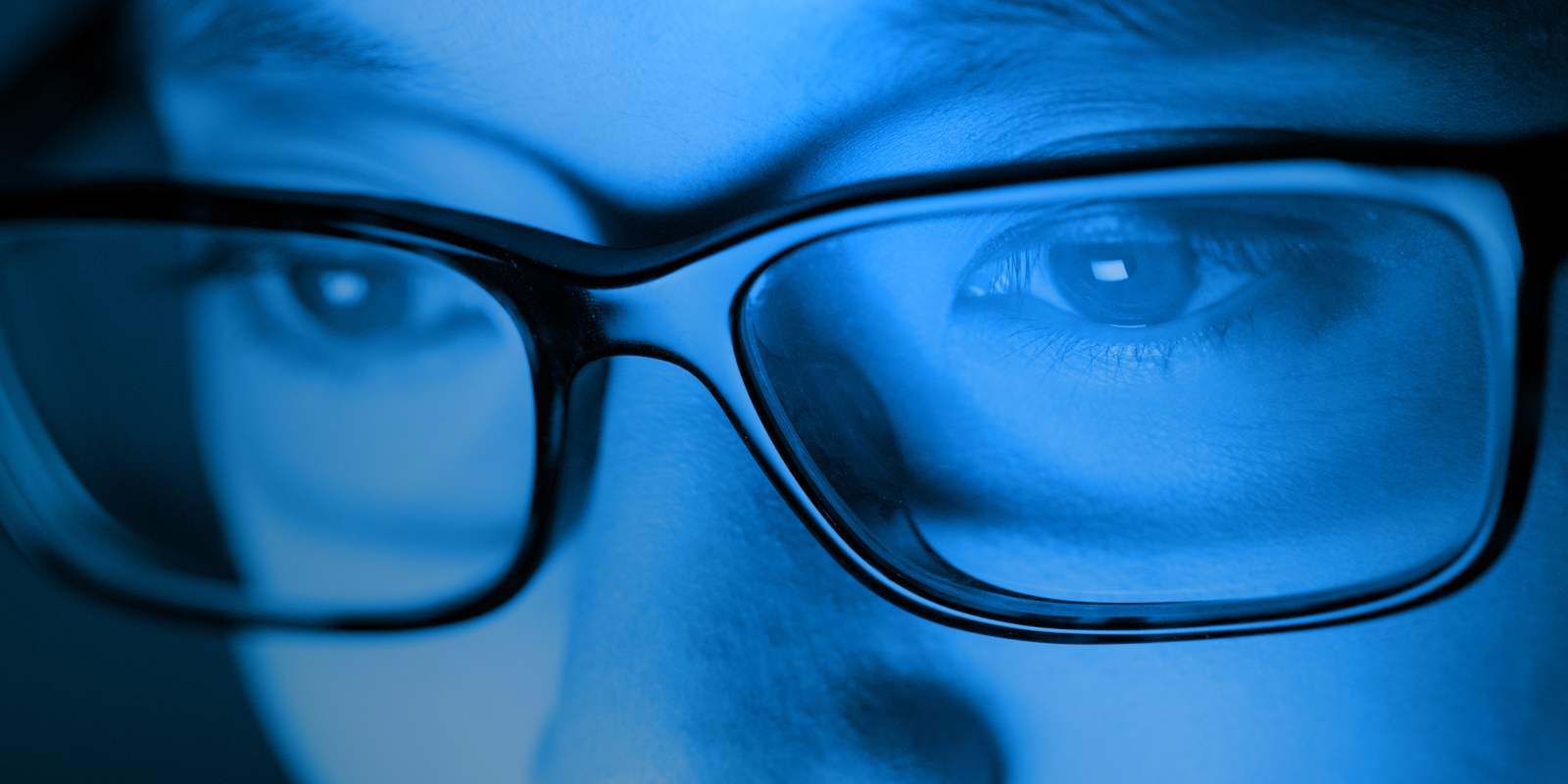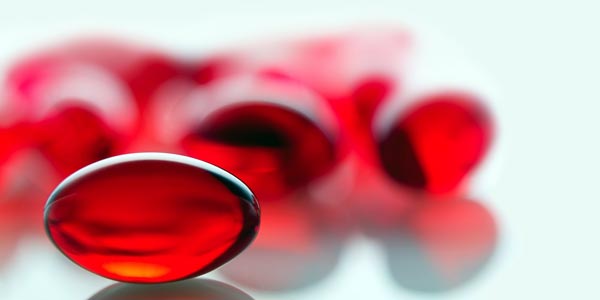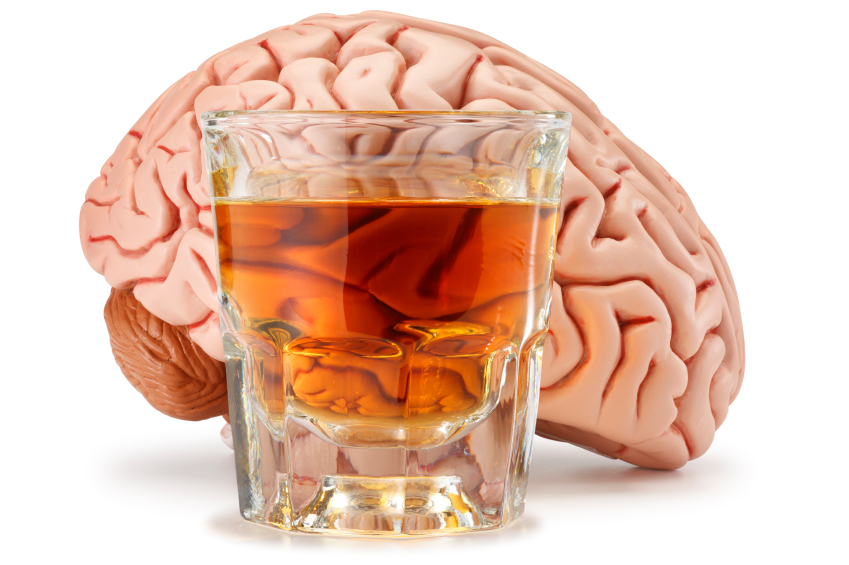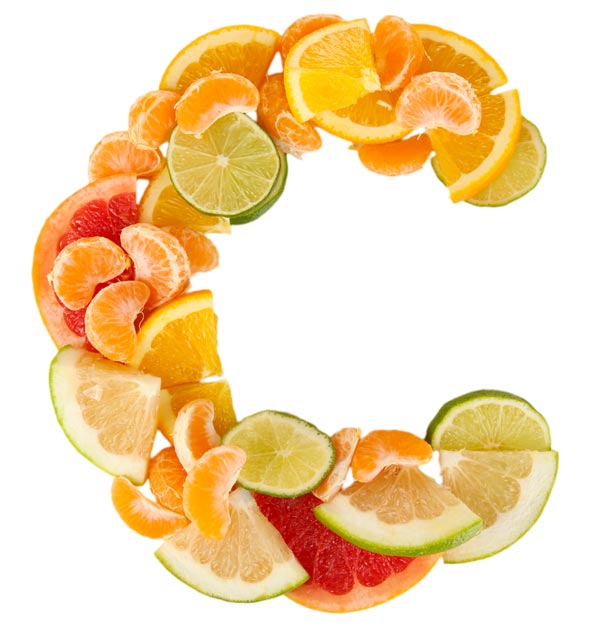Overcoming brain and mental health issues isn't just about nutrition and supplementation.
It's also about light.
Chronic exposure to artificial blue light is a risk factor that is often overlooked.
This post talks about how you should be striving to reduce your blue light exposure as much as possible throughout the entire day (unless it’s naturally coming from the sun).
We're getting way too much blue light nowadays, and it’s taking a toll on your brain and mental health.
And if you’re interested in learning more about light, I recommend the book Light: Medicine of the Future by Dr. Jacob Liberman.
What Is Blue Light?
Light is part of the electromagnetic spectrum.
Our eyes can only see light that falls within a small range of the electromagnetic spectrum, called "visible light". The human eye is not capable of "seeing" radiation with wavelengths outside the visible spectrum.
Visible light corresponds to a wavelength range of approximately 400 to 700 nanometers (nm). Each visible wavelength is represented by a colour. Blue light is defined as having a wavelength between 450 and 495 nm. This short wavelength means that blue light is a type of high-energy visible light (25).
Blue light is emitted from energy-efficient fluorescent and LED bulbs, and electronics such as computers, smartphones, tablets, and televisions. Obviously, these indoor man-made sources of blue light are on the rise, and we’re being exposed to more blue light in our environments than ever before (26).
Why Artificial Blue Light Is Bad for Your Brain and Mental Health
I’ve been learning more and more that it’s best to limit your exposure to artificial blue light all day long, and not just at night.
It’s important to note that there’s a big difference between artificial blue light and natural blue light from the sun.
During the day, exposure to full-spectrum sunlight – which naturally contains some blue light –is actually beneficial and necessary for resetting your circadian rhythm.
The blue light from the sun is also balanced with other colours of light, such as red, green, infrared, and ultraviolet light.
But our devices and artificial lights have five times the amount of blue light than you would get from the sun.
In the past, our ancestors would have been exposed to blue light from the sun only, and they weren’t exposed to blue light at night.
But today, we shield ourselves from full-spectrum natural sunlight, and live indoors with excess artificial blue lighting all day long.
And this is having brain and mental health consequences.
What The Experts Are Saying
An increasing number of researchers, doctors and health organizations are speaking out about this.
Dr. Jack Kruse, MD, a neurosurgeon and author of the book Epi-Paleo Rx, and speaks passionately about the risks of blue light. He argues that attending to your light environment is more important than food.
Dr. Alexander Wunsch, another physician and researcher in the field of photobiology, explains that artificial LED lights have an excess of blue light, and not enough red light, and this creates reactive oxygen species (19):
“We don’t have this kind of light quality in nature. This has consequences. The stress has consequences in the retina; it has consequences in our endocrine system.”
Even the American Medical Association is speaking out about this issue. Last June, they released guidelines on how to reduce the harmful human and environmental effects of high-intensity LED lighting.
They point out that the energy-efficient LED lighting adversely suppresses melatonin at night, has a “five times greater impact” on sleep rhythms than conventional lighting, and widespread implementation of this lighting will lead to sleep problems and other conditions related to poor sleep.
“Despite the energy efficiency benefits, some LED lights are harmful.”
There is lots of research to support these claims and concerns.
Researchers have discovered photoreceptors (light-sensitive cells) in our eyes that track the amount of blue light we're exposed to throughout the day. These photoreceptors communicate with areas of your brain that affect your mood, emotions and circadian rhythm (20-22).
It’s also well-established that blue light at night sends a signal to your body that it’s daytime, which increases the amount of time it takes to fall asleep and reduces the quality of your sleep. It does this by significantly suppressing the production of melatonin, your body’s sleep hormone (27-34).
Melatonin is also an antioxidant that protects your brain and increases mitochondrial function. So chronically low melatonin can lead to lower mental energy and neurodegeneration (35-37).
In my experience, if your circadian rhythm is thrown off and you’re not sleeping well, it's very hard to be completely healthy and emotionally balanced.
Studies show that exposure to blue light at night is significantly associated with depression (23).
Other research has found that “higher nighttime light intensity” leads to lower melatonin levels, which contributes to depression and cognitive impairment (24).
But luckily there are ways to protect yourself.
Let’s get into what you can do to shield yourself from the negative effects of artificial blue light.
1. Use Software That Blocks Blue Light
Installing software that prevents blue light from being emitted from your technology is another cheap and straightforward action you can take to protect yourself from excess blue light.
My number one recommendation is to install the program Iris on your computer. You can download it here.
Iris automatically alters the colour temperature of your screen as the day goes on, removing the blue wavelengths after sunset.
The standard setting only removes blue light in the evening, but you can change the settings so that it blocks out blue light all day long. That’s what I do now.
Iris takes care of your computer, but what about your phone?
Last year, Apple released Night Shift with its iOS 9.3 update to reduce the amount of blue light emitted from the iPhone. You can learn how to activate this on your iPhone here. I have Night Shift turned on all throughout the day.
You can also install Twilight if you have an Android device.
2. Wear Blue-Light-Blocking Glasses
It's becoming increasing clear that one of the simplest and least expensive ways to support your brain, promote healthy sleep, and lower your risk of chronic mental disease, is to wear blue-light-blocking glasses not just at night, but anytime you are exposed to artificial lighting.
I own multiple pairs of blue-light-blocking glasses myself.
Research shows that wearing blue-light-blocking glasses improves sleep quality and mood (1).
Other studies show that wearing blue-light-blocking glasses in a bright room or while using blue-lit technology maintains normal melatonin levels at night (2-4).
Researchers have also found dramatic improvements in insomnia and mood in about half of bipolar patients who wore blue-blocking glasses (5).
People with bipolar disorder who wore blue-blocking glasses from 6 p.m. to 8 a.m. for seven days had significant improvements in symptoms of mania compared to those who wore clear glasses. These benefits kicked in after just 3 days (6-7).
I used to work on a computer in an office with lots of artificial fluorescent lighting shining down on me.
At that time, I would wear these Gunnar computer glasses. These glasses have a light-yellow tint and are somewhat stylish. They significantly reduced the amount of blue light that I was exposed to throughout the day, which reduced fatigue and eye strain.
They are like the opposite of sunglasses - I wore them inside when I was exposed to artificial blue light, and took them off when I went outside.
Gunnar Optiks has a wide-range of computer and gaming glasses to choose from through Amazon.
If you work under blue light all day, it’s also a good idea to wear long sleeves because your skin also absorbs the blue light. Shielding it from your eyes is the priority though.
At home in the evening, I wear these orange-tinted Uvex glasses as soon as it’s dark outside. They eliminate all blue light, but aren’t stylish at all, so you’re better off wearing them inside and not out in public.
I also just ordered these red glasses, as they block out both blue and green light. Green light has been shown to stunt the release of melatonin, but not nearly as much as blue light. If you don’t have blue-blocking glasses yet, get the red ones.
You can also get BluTech prescription lenses for the daytime but I haven’t done that for myself yet.
3. Increase Your Exposure to Red and Infrared Light
“Blue light causes reactive oxygen species in your tissue, and this stress needs to be balanced with near-infrared light that is not present in LEDs.”
If you’re exposed to too much blue light, you need to make up for it later by exposing yourself to more red light.
One of the reasons red and infrared light supports brain and mental health is because it combats the effects of blue light.
Ideally, we would simply be exposed to the sunlight throughout the day, which has a healthy balance of both blue and red light.
But unfortunately, we live in the modern world, and it’s not possible to live outside all day like our ancestors, even though our bodies still expect us to.
I work in an office environment with lots of blue light, and no red and infrared light.
So to balance out my excess blue light exposure during the day, I use a number of different LED devices and bulbs in the evening that emit red and infrared light.
As I’ve discussed before, I use this device on my head and thyroid. It has LEDs that emit red and infrared light.
But what I haven’t mentioned before is that I also have this infrared bulb shining in my bedroom and this red bulb in my bathroom. I use them to light up my apartment, particularly at night.
Infrared saunas are another excellent way to expose yourself to infrared light. Check out my post about the benefits here.
“Penetrating red light is possibly the fundamental anti-stress factor for all organisms. Old observations such as Warburg’s, that visible light can restore the activity of respiratory pigments, showed without doubt that visible light is biochemically active. By the 1960s, several studies had been published showing the inhibition of respiratory enzymes by blue light, and their activation by red light. The problem to be explained is why the science culture simply couldn’t accept crucial facts of that sort.”
I find that doing all of this increases my energy and mood.
This may all seem strange but it works, and there is plenty of evidence to support it.
In fact, red light therapy has been around for over 100 years. In 1910, Dr. John Kellogg published a book, titled Light Therapeutics, in which he recommended light therapy for a number of different diseases, including chronic fatigue.
Research shows that high-intensity blue light is bad for your mitochondria, while red light enhances mitochondrial function (15-18).
I even found a study that clearly shows that red LED light protects animals from fake artificial blue light (14).
And here is a spreadsheet that compiles a lot of the research showing that red and infrared light can help treat many different diseases, including depression, anxiety, traumatic brain injury, stroke, Parkinson's disease, Alzheimer's disease, multiple sclerosis, hypothyroidism, acne and chronic pain.
Overall, blue light triggers oxidative stress in your cells, while red light repairs and regenerates your cells. Blue light is the equivalent to eating junk food, while red light is like eating healthy food. Staring at your smartphone all day and night is like eating McDonalds, while shining red light on yourself is like eating more vegetables. If you eat too much junk food, you might make up for it later by eating healthier and exercising. But with blue light, you need to make up for it by absorbing more red light. That’s what I do, and I hope it helps you too.
4. Sleep in a pitch black room
Making sure your bedroom is as dark as possible while you sleep is another step you can take.
Light can penetrate your eyelids, so simply closing your eyes is not enough.
Even small amounts of light can reduce your melatonin production and disrupt your circadian rhythm. Exposure to room light during sleep has been shown to suppress melatonin by more than 50 percent (8).
I completely black out my room with black-out curtains.
Another option is to wear a sleep mask.
However, it’s important to note that your skin also has photreceptors and can sense light in your environment (9-11).
So it’s optimal to just black out your entire room with curtains, especially if you have LED streetlights outside your house.
Electronics should also be unplugged so that your room is completely dark.
If you do these things, you’ll notice a profound difference in your sleep and brain and mental health.
5. Vitamin E and N-Acetyl-Cysteine (NAC)
Vitamin E and N-Acetyl-Cysteine (NAC) are two nutrients with antioxidant effects.
One study found that NAC protects against the cellular damage induced by blue LED light (38).
Perhaps this is one of the reasons NAC helps people who struggle with mental illness.
Another study found that a combination of vitamin E and NAC significantly reduced blue-light-induced levels of reactive oxygen species (39).
Both NAC and Vitamin E are included in the Optimal Antiox supplement.
6. Lutein and Zeaxanthin
Lutein and zeaxanthin are two more antioxidants that are found in your eye that may be able to protect you from the detrimental effects of blue light.
Both zeaxanthin and lutein cannot be made by your body, so you must get them from food or supplements. They are found in green leafy vegetables, orange and yellow-coloured fruits and vegetables, and egg yolks.
Together, these antioxidants can reduce free radicals before they cause damage and help your body better handle excess blue light. Researchers have found that they “absorb a broader spectrum of high-energy blue light, which offers greater protection of retinal tissue” (12, 13).
You can also take them together as a supplement.
Conclusion
Nutrition is important. But it's not the be all and end all.
Light is just as important.
Overall, you should aim to limit your exposure to blue light, both during the day and evening.
Humans evolved getting a full spectrum of light throughout the day, not overwhelming amounts of artificial blue.
Excessive blue light from LEDs and electronic screens can contribute to illness by triggering an overproduction of reactive oxygen species and decreasing your body’s production of melatonin.
But with the above modifications, you can significantly reduce the amount of blue light that enters your eyes and affects your brain and mental health.
References:
(1) https://www.ncbi.nlm.nih.gov/pubmed/20030543
(2) https://www.ncbi.nlm.nih.gov/pubmed/22850476
(3) http://onlinelibrary.wiley.com/doi/10.1111/j.1600-079X.2006.00332.x/full
(4) http://press.endocrine.org/doi/full/10.1210/jc.2004-2062
(5) https://www.ncbi.nlm.nih.gov/pubmed/20030543
(6) http://www.newsweek.com/blue-blocking-glasses-may-help-treat-bipolar-disorder-promote-sleep-484065
(7) http://onlinelibrary.wiley.com/doi/10.1111/bdi.12390/abstract
(8) https://www.ncbi.nlm.nih.gov/pmc/articles/PMC3047226/
(9) https://www.ncbi.nlm.nih.gov/pubmed/19493002
(10) https://www.newscientist.com/article/dn21127-skin-sees-the-light-to-protect-against-sunshine/
(11) http://onlinelibrary.wiley.com/doi/10.1111/bdi.12390/abstract
(12) http://jn.nutrition.org/content/133/4/992.long
(13) http://www.newhope.com/high-energy-blue-light-exposure-protection-all-ages-white-paper
(14) https://www.ncbi.nlm.nih.gov/m/pubmed/27562504/
(15) https://www.ncbi.nlm.nih.gov/pubmed/7769534
(16) https://www.ncbi.nlm.nih.gov/pubmed/18922088
(17) https://www.ncbi.nlm.nih.gov/pubmed/19837048
(18) https://www.ncbi.nlm.nih.gov/pubmed/21116053
(19) https://www.ncbi.nlm.nih.gov/pubmed/15978279
(20) https://www.ncbi.nlm.nih.gov/pubmed/9554572/
(21) http://www.newsweek.com/blue-blocking-glasses-may-help-treat-bipolar-disorder-promote-sleep-484065
(22) https://www.ncbi.nlm.nih.gov/pmc/articles/PMC3200463/
(23) https://www.ncbi.nlm.nih.gov/pubmed/23856285
(24) http://press.endocrine.org/doi/pdf/10.1210/jc.2015-1859
(25) https://www.ncbi.nlm.nih.gov/pubmed/24909301
(26) https://www.ncbi.nlm.nih.gov/pmc/articles/PMC4734149/
(27) https://www.ncbi.nlm.nih.gov/pubmed/21415172
(28) https://www.ncbi.nlm.nih.gov/pubmed/21164152
(29) https://www.ncbi.nlm.nih.gov/pubmed/15582288
(30) https://www.ncbi.nlm.nih.gov/pubmed/15325001
(31) http://onlinelibrary.wiley.com/doi/10.1111/jsr.12050/full
(32) http://www.ncbi.nlm.nih.gov/pubmed/23691095
(33) http://bmjopen.bmj.com/content/5/1/e006748
(34) https://www.ncbi.nlm.nih.gov/pmc/articles/PMC3047226/
(35) http://behavioralandbrainfunctions.biomedcentral.com/articles/10.1186/1744-9081-2-15
(36) https://www.ncbi.nlm.nih.gov/pubmed/16179266
(37) https://www.ncbi.nlm.nih.gov/pubmed/16364209
(38) https://www.ncbi.nlm.nih.gov/pubmed/24909301




































